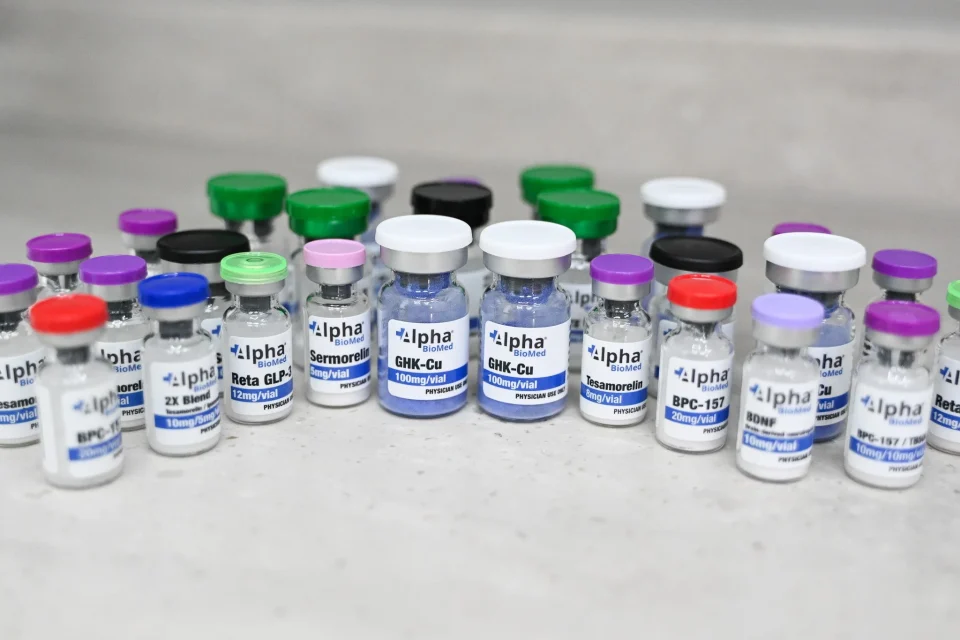Brain research programs during the Cold War era produced numerous experimental compounds. Soviet neuroscientists synthesized peptides from hormone fragments, testing for medical applications. Semax is the product that resulted from this research. Scientists created it by isolating a short amino acid sequence from adrenocorticotropic hormone. The original purpose was to treat stroke damage. Doctors needed drugs that protected brain tissue when blood flow stopped. Early tests showed the compound helped preserve neurons during oxygen deprivation.
Development of stroke treatment
Russian researchers at the Institute of Molecular Genetics initially studied the peptide for acute brain injuries. When arteries become blocked, stroke patients lose brain function quickly, yet therapies focusing on neural support can help regain abilities, including options to bluumpeptides. Standard treatments did little to prevent permanent damage. The research team tested whether hormone fragments could protect neurons from dying. Animal experiments produced encouraging results. Rats given the peptide before induced strokes had smaller areas of dead brain tissue. Recovery happened faster in treated animals. Motor function returned sooner.
The compound appeared to shield cells from the cascade of damage that normally followed oxygen loss. Human trials began at Moscow medical centers during the 1990s. Stroke victims received injections within hours of their attacks. Some studies reported faster recovery compared to standard care alone. Walking ability returned earlier. Speech problems resolved more quickly. These early results generated interest in the compound’s brain-protective properties. Traumatic brain injury became another research target. Soldiers, accident victims, athletes with concussions all faced cognitive problems after head trauma. Russian doctors tested the peptide on these populations. Published papers claimed improvements in memory, attention, and processing speed during recovery periods.
Cognitive performance measurements
Human studies tested the peptide on healthy volunteers and patient populations. Attention tests showed improvements in some trials. Reaction times decreased. Error rates dropped on sustained attention tasks. Subjects maintained focus longer during boring, repetitive work. Working memory capacity expanded in several experiments. People held more items in mind simultaneously. Digit span tests showed higher scores. Complex reasoning tasks got solved more accurately. These gains appeared within hours of administration.
Verbal fluency improved in linguistic tests. Subjects produced more words within time limits. Speech became smoother with fewer pauses, searching for vocabulary. Reading comprehension scores rose in some student populations tested during exam periods. Professional and academic users report subjective benefits. Software developers claim better concentration during coding sessions. Medical students describe improved information retention while studying. Financial analysts mention sustained mental energy during market hours. These self-report lack scientific controls but indicate perceived value.
The compound differs from traditional stimulants in its mechanism. Caffeine blocks adenosine receptors, preventing drowsiness signals. Amphetamines force dopamine release regardless of natural demand. Eastern European students use the compound during academic periods despite no official approval for cognitive enhancement. Underground markets supply it alongside other nootropics. Online discussion groups share dosing protocols and experience reports. This widespread unofficial use reflects demand for cognitive lack the problems associated with prescription stimulants.
Research continues at various institutions. Some studies examine attention deficit populations. Others test age-related memory decline. Results vary across experiments. Methodological differences in dosing, timing, and outcome measures make comparisons difficult. Publication bias may skew available data often go unpublished. More rigorous placebo-controlled trials would clarify which cognitive claims have merit.

